The 20 Best Villains From Non-Comic Book Movies Ranked
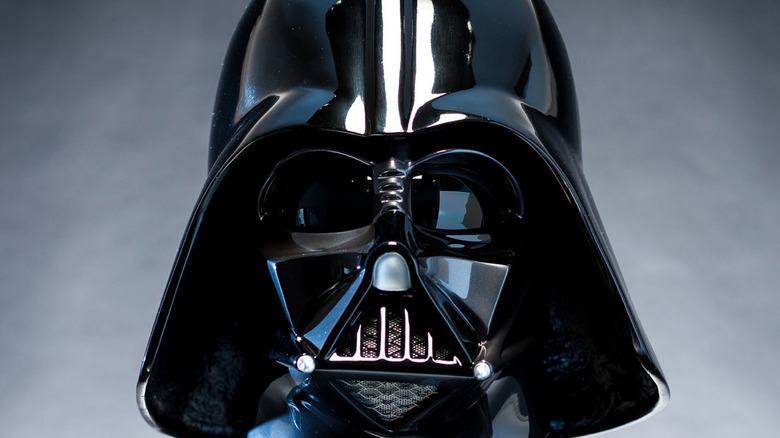
You ever notice that there aren't that many articles breaking down the best heroes in cinematic history? That's because, at some basic level, heroes are all similar: They all have the same noble inclinations and can usually be counted on to do the right thing. Otherwise, they wouldn't be heroes. Villains, on the other hand, are deliciously varied; every antagonist is evil in their own unique way.
The baddies we list here run the gamut from the ultimately redeemable to completely unrepentant, from the manipulative and cruel to the hypocritical to the outright murderous. They all hurt people -- and most of them enjoy it -- but other than that, these villains have little in common. Heroes' motivations to do good are fairly simple and straightforward; the impulse to do ill can't be summed up nearly so easily. However, despite these differences, all these villains have done enough to make them memorable in the eyes of audiences, whether they're upsetting, frightening, or strangely charismatic.
Lina Lamont — Singin' In The Rain
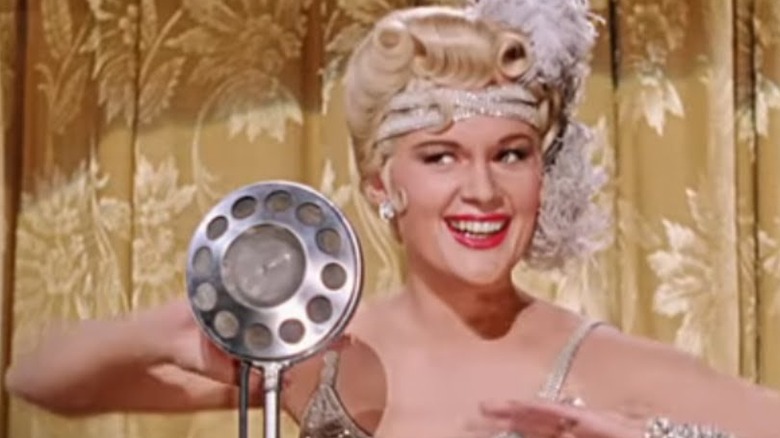
There's something about Lina Lamont (Jean Hagen) that makes you underestimate her. Maybe it's her shrill voice. Maybe it's her movie-star good looks. Maybe it's the fact that, objectively, she's not the sharpest bulb in the toolshed. But make no mistake: This woman will steamroll anyone who gets in her way, and she'll do it with a smile on her face.
Lina Lamont is the silent film co-star and rumored lover of Don Lockwood (Gene Kelly) in "Singin' in the Rain," who gets an uncomfortable reality check when Don falls in love with Kathy Seldon (Debbie Reynolds), and when her career is threatened by the onset of sound. She plots and schemes with the best of them, throwing everyone else under the bus in order to save her career, and manages to be so patently unlikeable that it's almost charming.
Billy Loomis — Scream
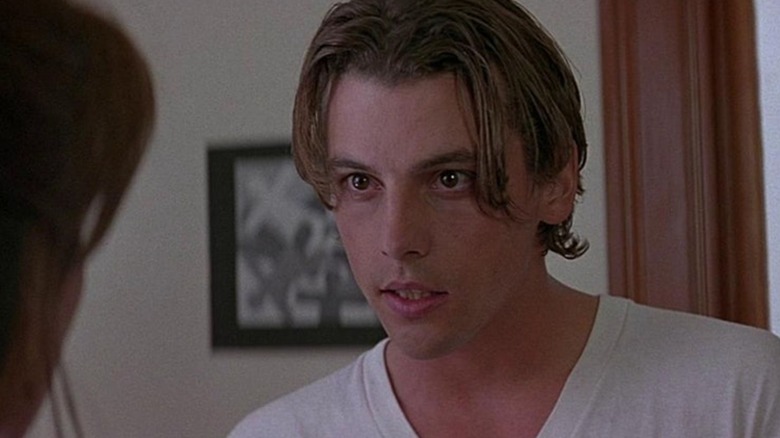
Billy Loomis (Skeet Ulrich) is the quintessential gaslighting teen boyfriend. When Sidney (Neve Campbell) receives intimidating calls and has her life repeatedly threatened in "Scream," all signs point to her boyfriend Billy as the one responsible. He has access and there's circumstantial evidence, all the things that they would use in an episode of "Law and Order" to pin a crime on a person. But Sidney doesn't trust her instincts, and with the help of some serious manipulation from Billy, she doesn't push the issue.
The fact that Billy is able to play everyone for so long (and for no particularly good reason) is genuinely frightening; it's always scarier when a villain is attacking without a clear motive. But Billy is also on this list because he's still a teenager, and his ultimate ineptitude gives "Scream" an added dose of sly humor. Watching him and Stuart (Matthew Lillard) psych themselves up to give each other non-fatal stab wounds so they can pass themselves off as victims is as legitimately funny as it is horrifying.
Phoenix Buchanan — Paddington 2
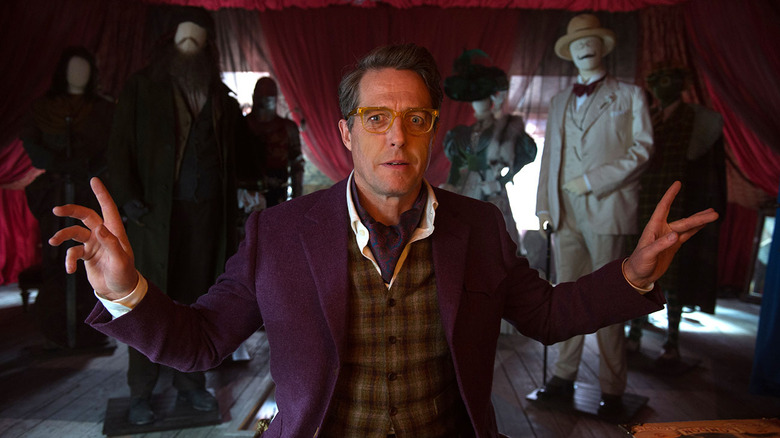
Bad people take advantage of the innocent all the time, but it takes a special type of monster to look at sweet little Paddington, who doesn't have a single unkind bone in his body, and think, "Yes, I will frame this bear for a terrible crime." That's Phoenix Buchanan (Hugh Grant), a famous actor whose descent into cheap dog food commercials has him desperate for his next great role.
Throughout the entirety of "Paddington 2," Hugh Grant puts on a one-man show, switching from outrageous disguise to outrageous disguise with a sense of pageantry. He may be evil, and his intentions may be incredibly dishonorable, but there's no denying that he's having the time of his life. Grant, like Buchanan, relishes the opportunity to be as over-the-top and melodramatic as he wants, and it's fitting that his first role as an out-and-out villain would be his most exciting performance in years.
Philip And Brandon — Rope
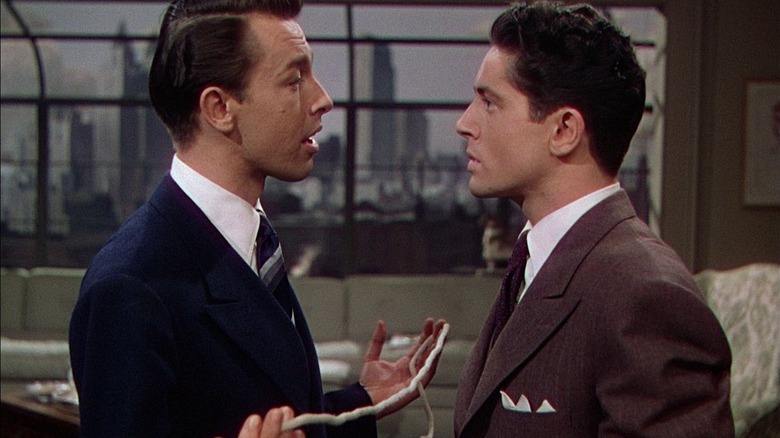
Philip and Brandon from Alfred Hitchcock's "Rope" are far from household names, but they are nonetheless terrifying in how they take upper-class white entitlement to a logical, if deeply disturbing, conclusion. When "Rope" begins, the two young men have just killed a former classmate, not because of any ill-will between them, but because they're interested in murder from an intellectual perspective. If they are truly as smart as they believe themselves to be, they should be capable of committing the perfect crime, a murder so well-executed that no one would ever be able to link them to it.
Philip and Brandon's perceived intelligence leads them to the conclusion that they are superior to everyone else, and from there it's an easy jaunt to the belief that the lives of others are less valuable than their own. We can see echoes of this in the crimes privileged young men commit today, believing that it is their birthright to evade the consequences of their actions.
Count Rugen — The Princess Bride
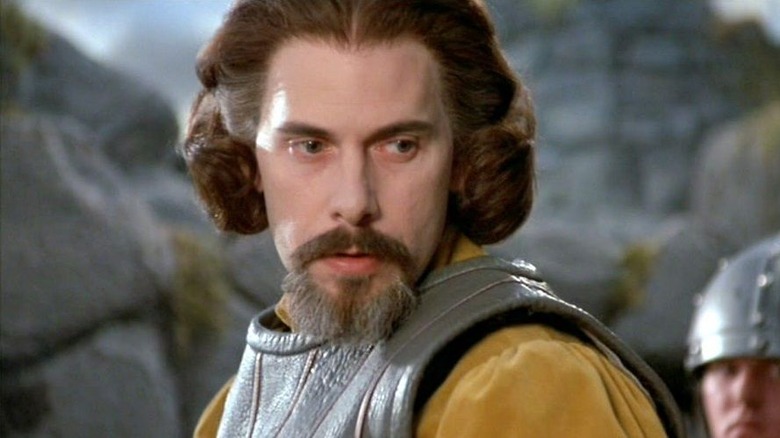
Prince Humperdinck gets a lot of credit for being the bad guy in "The Princess Bride." After all, he's the one who serves as an impediment to Westley and Buttercup's relationship, who orders Buttercup to be kidnapped and murdered, and a bunch of other generally distasteful things.
But objectively, Count Rugen is so much worse. This is a man who spends his spare time holing himself up in an underground lair, getting a PhD in torture. You can respect his commitment to scientifically rigorous research conditions but really, there's a point where enough is enough (it's usually right around when you're building a water-powered torture device and hooking people up to it). This is to say nothing of how Rugen treats people in retail, famously killing the father of Inigo Montoya, whom he had hired to make a special sword to accommodate the additional finger on his right hand. A bad dude all around.
Mark Zuckerberg — The Social Network
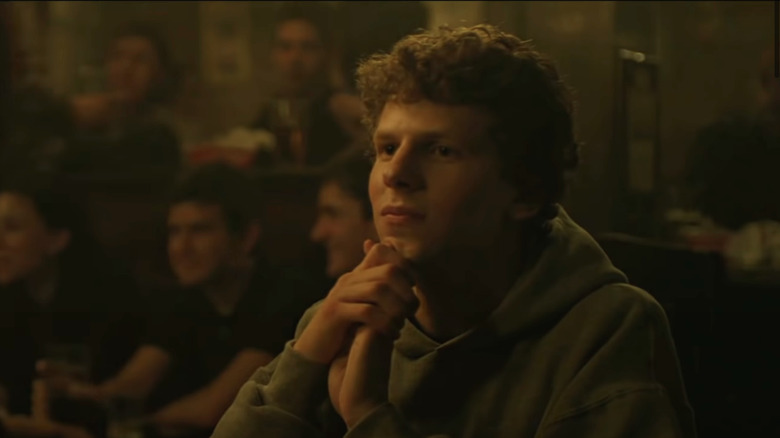
The more interesting thing about "The Social Network" is that it came out at a time when Facebook was incredibly popular and Mark Zuckerberg was celebrated as a tech visionary, yet it still keeps its protagonist at arm's length. It doesn't know quite what to make of him, and its wariness towards Zuckerberg is one of the reasons why the film has aged so well. While "The Social Network" acknowledges Zuckerberg's accomplishments, it also lays bare his socially maladjusted tendencies.
Rooney Mara's brief but memorable scene at the beginning of "The Social Network" highlights the truth about the chip Zuckerberg has on his shoulder: "You're going to go through life thinking that girls don't like you because you're a nerd. And I want you to know, from the bottom of my heart, that won't be true. It'll be because you're an a**hole."
This informs the rest of the film, as Zuckerberg perpetually betrays colleagues over perceived slights, all while believing in his heart that he is the one who has been poorly treated. That Fincher was able to identify the villainy in Zuckerberg long before it was public knowledge and give him a biopic that depicts him as morally ambiguous (at best) at a time when he was at the peak of his fame is what makes "The Social Network" so great.
Judge Doom — Who Framed Roger Rabbit
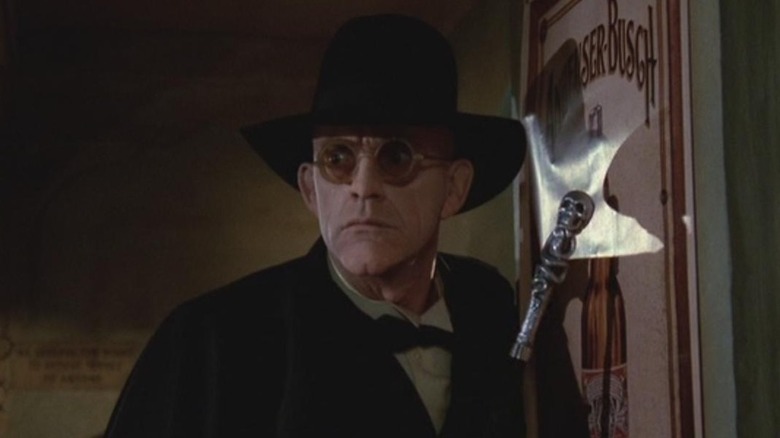
Despite the fact that "Who Framed Roger Rabbit" has a lot of cartoon characters in it, it's also a neo-noir, which gives it a dark, seedy energy. So of course, it has to have an appropriately vile antagonist. That's where Judge Doom comes in. He rules over the city of Toontown with an iron fist, issuing out cruel and violent punishments without mercy.
"So what?" you might think. There are plenty of immoral authority figures in film. What makes Judge Doom so special? Two simple words: the Dip. A death sentence for Toons that struck fear in the heart of every child who watching "Who Framed Roger Rabbit," the Dip is a concoction that permanently erases Toons (the chemicals involved are all paint thinners and acids, which would, fittingly, remove paint or ink from animated work).
The moment that cements Judge Doom as an all-time baddie is when he sends an innocent animated shoe to his death: Utterly terrified, begging for his life, the shoe is slowly lowered into a vat of the Dip, and we were all traumatized for life.
Anton Chigurh — No Country For Old Men
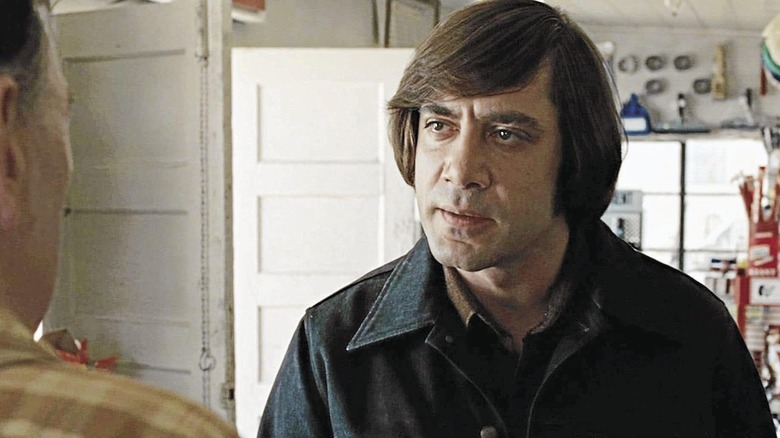
Maybe it isn't quite fair to consider Anton Chigurh a villain. After all, he doesn't actually mean anyone ill on a personal level. He's a picture of amorality, not wickedness.
In "No Country for Old Men," Anton Chigurh is hired to retrieve a large sum of money from a drug deal gone bad, and to that end, he kills a lot of people. But not because he wants to -- the scary thing about Chigurh is that he truly doesn't care either way. He's a textbook psychopath who flips a coin to decide the fate of those who cross his path. He never kills out of impulse, but always with a purpose. In this way, he can be considered the human incarnation of the inevitability of fate, an Angel of Death who cares little for the pleas of the humans he comes across.
The Armitage Family — Get Out
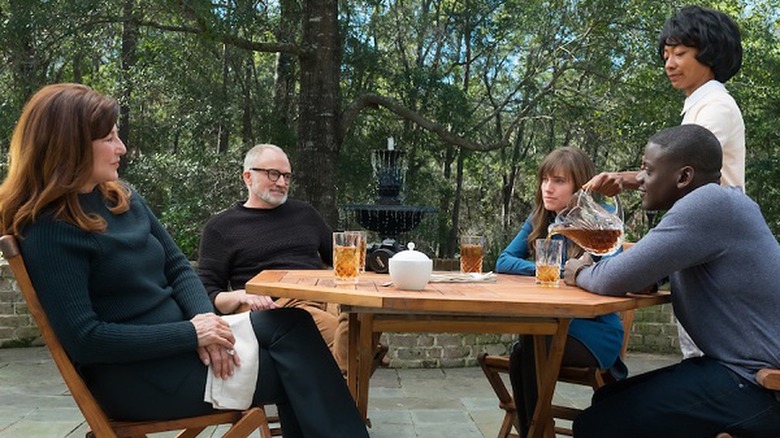
At first, the Armitages in "Get Out" seem to vary in terms of their morality. When Chris Washington (Daniel Kaluuya), a young Black man, meets his girlfriend Rose's (Allison Williams) wealthy, lily-white family, they come across like any other group of WASP-y liberals. Her parents are well-intentioned but tone-deaf (the father's proud pronouncement that he would have voted for Obama a third time if he could have, for example, is the 2018 version of "Some of my best friends are Black). Her brother Jeremy is the most overtly racist, feeling the need to bring up the idea that Chris should be an MMA fighter because of his genes. Meanwhile, Rose seems to be living in an oblivious post-racial daydream.
But as we learn more about the Armitages, we begin to understand that they are all equally complicit in racial violence, regardless of how they present themselves. So, it doesn't seem quite fair to single out any one member of the Armitage family; they're all villains because of their participation in the family business.
Mr. Potter — It's A Wonderful Life
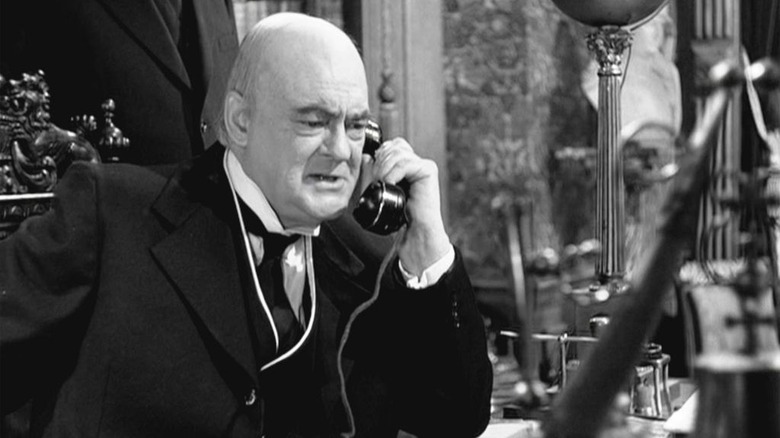
Mr. Potter in the deeply melancholy "It's a Wonderful Life" is not just a bad guy. He's the human embodiment of everything that's wrong with American capitalism. The honorable George Bailey is kind, endlessly generous, and just can't seem to catch a break. Every time he seems to be on the verge of achieving his dreams, he's forced to make a choice between personal happiness and the greater good, and he always sacrifices himself.
Having spent the better part of his life desperate to get out of Bedford Falls and see the world, George finds himself a middle-aged man with a family that he loves, but that also makes him feel trapped. And when his absent-minded uncle loses a considerable amount of money that was intended to keep the family business solvent, it's one disappointment too many.
Some of the struggles George faced throughout his life were pure fate, and couldn't have been avoided. But a lot of them had something to do with Mr. Potter, the ruthless bank owner who has made it his life's work to make George as miserable as possible. Any time there's a choice between profit and charity, Mr. Potter choses profit. Nearly 80 years after the film was released, Mr. Potter still stands as an example of ultimate corruption and corporate cruelty.
Biff — Back To The Future
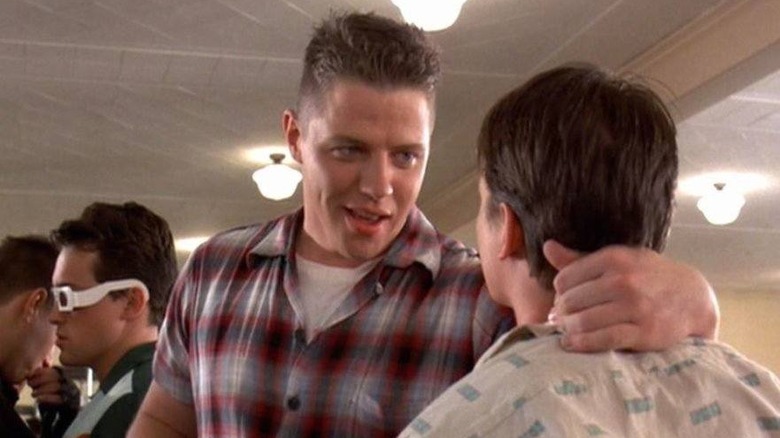
The fact that Biff, the villain in all three "Back to the Future" films, has been compared frequently to Donald Trump should serve as a pretty clear indication that he's one of the most villainous bad guys in all of cinema. His crimes are numerous: attempted rape, assault, time machine theft, gambling, and having the lack of taste to think that his tacky "Pleasure Palace and Casino" was sophisticated. At best, he's an insecure high school bully who never grew up. At worst, he's a raging narcissist with homicidal tendencies and a very messed up view of the women in his life.
In fact, Biff's villainy is so powerful that it lingers in his very genes: Not only is Biff Tannen a total monster during his own lifetime, but we have pretty significant evidence that his grandson Griff and his great-grandfather Buford "Mad Dog" Tannen were nasty pieces of work in their own right. You would think that at some point a Tannen would birth a quiet, mild-mannered little guy, but no -- the whole family is built for cruelty.
Louis — Kind Hearts And Coronets
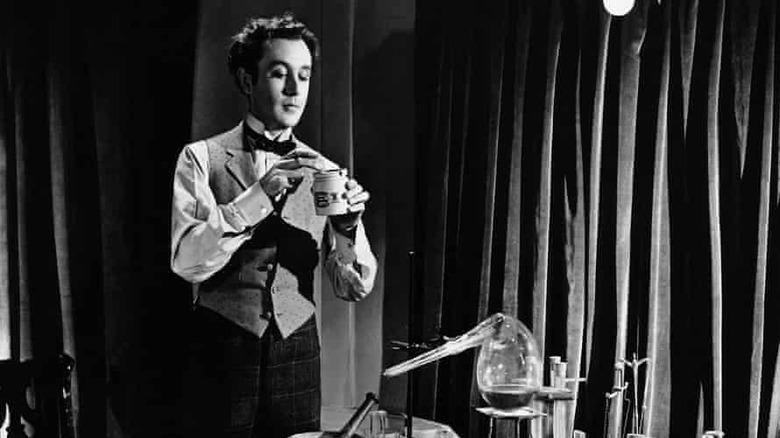
Entitlement, thy name is Louis from "Kind Hearts and Coronets." This kid is obsessed with his noble matrilineal heritage and is so offended at the idea that his family scorned his mother for the crime of marrying beneath her that he decides to kill off every single relative that stands in the way of his family's dukedom. The quintessential poor relation, Louis is insecure and particularly prone to perceiving slights at every turn. It's maybe not the easiest jump to go from that to actively homicidal, but Louis does it without a care in the world.
"Kind Hearts and Coronets" is a dark comedy, so there's a certain gleefulness in how Louis dispatches his various relatives, but that doesn't change the fact that he is a verifiable mass murderer. The number of times he kills Alec Guinness in this movie (Guinness, of course, plays every single member of the extended family, from a kind-hearted young photographer to a matronly aunt) is frankly impressive. We must give points for sheer determination.
Darth Vader — Star Wars
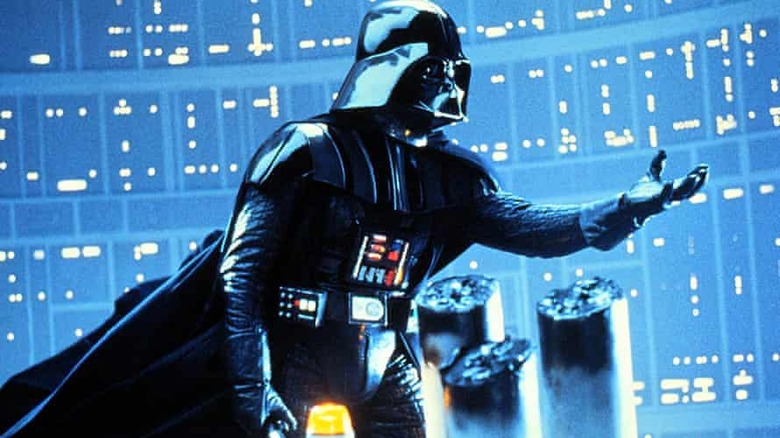
Speaking of people who kill Alec Guinness, Darth Vader from "Star Wars" certainly earns his place here. He's almost too obvious of a choice, being one of the most famous villains in cinematic history, but at the same time it would have felt weird to not include him.
Although Darth Vader was arguably at his most effective before audiences knew every single detail of his backstory (including his history as mop-headed racing prodigy and angst-ridden teen Jedi), as time passes it becomes easier to appreciate both the stoic, mysterious villain we see in the original trilogy and the tragic figure he was in the prequels.
Vader is a Byronic hero with a calamitous downfall, as he goes from being the hope for the future of the Jedi to their greatest enemy. He is the architect of his own misfortune, making terrible choices that only further his agony, but he also represents the hope that no one is too far gone to be redeemed.
Claude Frollo — The Hunchback Of Notre Dame
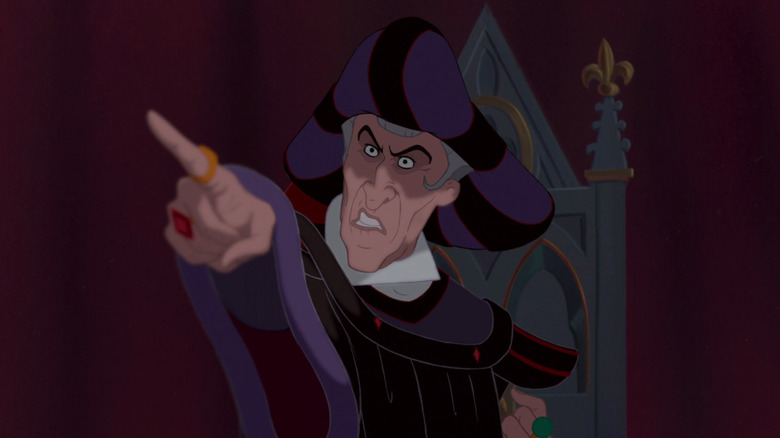
For someone who is very concerned about going to hell, Claude Frollo in "The Hunchback of Notre Dame" commits an impressive array of sins. Not only does he try to kill a baby in the opening sequence (and does have the baby's parents killed), he serves as a representation of the hypocrisy of religious zealots, calling out and punishing the sin that he sees in the world without considering his own evil actions.
Despite his prejudice, Frollo lusts after the beautiful Romani girl Esmerelda. But he won't take responsibility for his own sinful feelings. No, it couldn't be Claude Frollo's fault that he wants this woman. She must be using witchcraft and devilry to turn his eye towards her. Frollo's unflinching belief that all of his actions are justified -- and even sanctified by God -- makes him one of Disney's more complex and fascinating villains.
Annie Wilkes — Misery
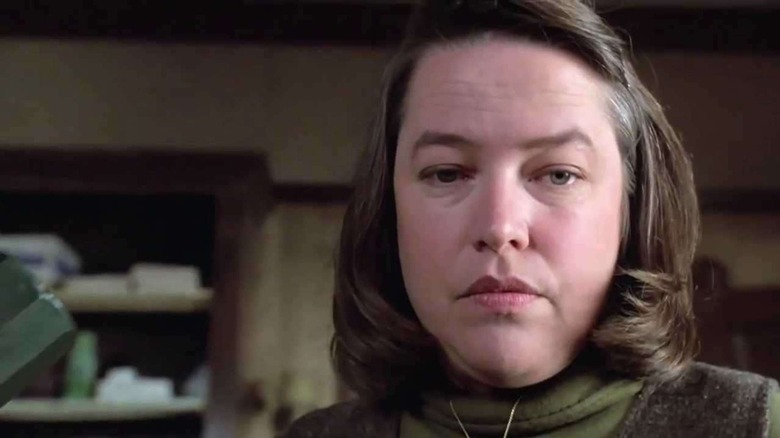
Annie Wilkes in "Misery" is toxic fandom come to life. When she "rescues" the author of her favorite book series, Paul Sheldon, she takes it upon herself to nurse him back to health. At first, Annie is a gushing fan, thrilled at the opportunity to talk to the person who created the character that means so much to her. But before long, it's clear that she feels an ownership over the character of Misery, and resents some of the choices that the author has made with her.
Things really come to a head when Annie learns that Sheldon, eager to move on from the series that has dominated his life, plans to kill Misery off, something that Annie can't allow to happen. She is determined to stop him by any means necessary, including but not limited to keeping him locked up in her house indefinitely, and even hobbling him to prevent his escape. Annie is unstable and unable to differentiate between fiction and reality, serving as a cautionary tale for hardcore fans of certain franchises who are starting to lose the thread a little bit themselves.
Debbie Jellinksy — Addams Family Values
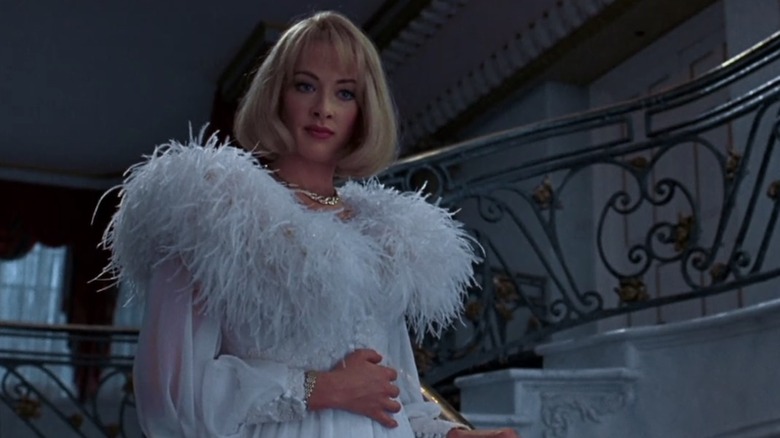
The members of the Addams Family are known for the fact that, despite their dark and macabre nature, they are genuinely loving to one another, and have probably the healthiest family dynamic in film. So, it makes a strange sort of sense that, in the family where everyone looks like the stereotype of a villain, the actual antagonist is the sunny blonde who joins their clan by marrying Uncle Fester (for nefarious reasons).
Debbie is a profoundly unstable widow several times over, having left behind a string of husbands who all died under mysterious circumstances. She hopes to add Fester to the list, but his cartoonish ability to withstand injuries that would normally be fatal continually disappoints her. Debbie's on this list for one reason and one reason only: the impeccable performance of Joan Cusack in the role. Her line readings are genuinely Oscar-worthy, especially when she gets her final villain monologue and she uses it to present the Addams Family with a literal slideshow detailing her life-long list of grievances.
Norman Bates — Psycho
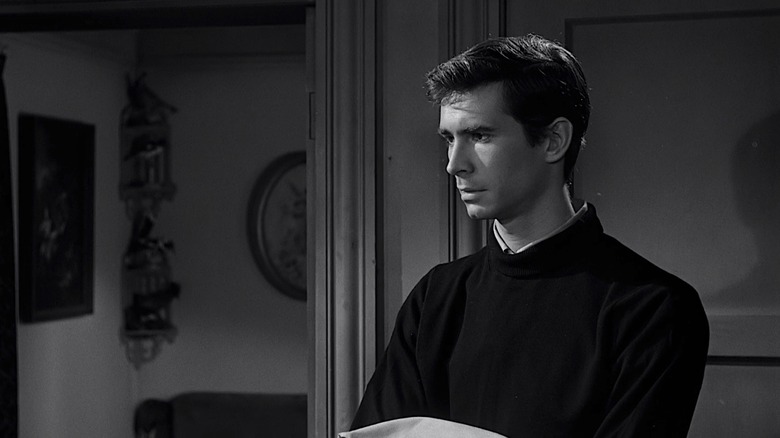
What is there left to say about Norman Bates? The man is an icon in the murder business. A lonely man with an unhealthy, codependent relationship with his (dead) mother, Norman runs the Bates Motel, where he dons his late mother's wardrobe and stabs young Marion Crane to death while she's taking a shower.
The character of Norman Bates has a proud serial-killing heritage: He was based on the real-life Ed Gein, a graverobber and murderer who famously kept keepsakes from the corpses of his victims and also had a close, borderline unhealthy relationship with his mother.
Actor Anthony Perkins imbues Norman with an avian presence, tilting his head in ways that give him the countenance of a bird of prey looking at a mouse. Bates would become one of the most famous cinematic murderers of all time, his antics spawning several sequels and a prequel television series.
Nurse Ratched — One Flew Over The Cuckoo's Nest
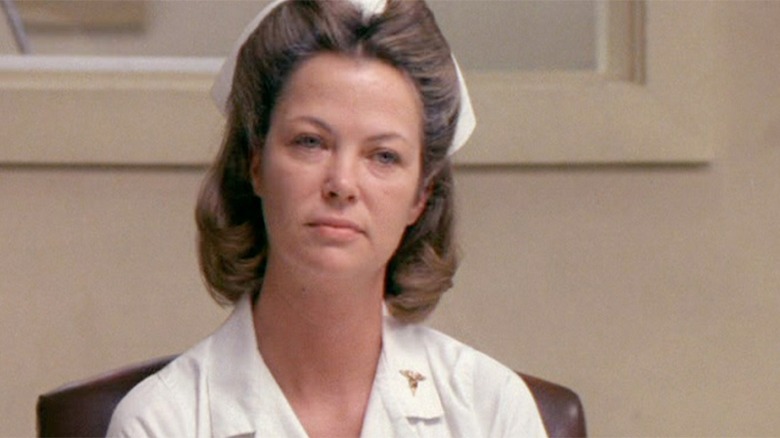
Nurse Ratched, to be fair, has a lot to put up with in "One Flew Over the Cuckoo's Nest" after R.P. McMurphy (Jack Nicholson) turns up in her ward. Indeed, for a good part of the film, the argument can be made that, although she is cold and rigid, Ratched is acting with the best of intentions towards the men in her change. All mentally unstable, they genuinely benefit from having a routine, and McMurphy comes in and disrupts all of that.
However, we naturally take McMurphy's side, because he is framed as our protagonist and has oodles of charm. By contrast, Ratched is easy to dislike, even if she's doing her job the best she can under difficult circumstances. That is, until her youngest charge, Billy Bibbit, defies her, and Ratched uses her familiarity with his personal life to say the one thing that she knows will break him. Then the mask falls, and we can see both that Ratched's desire to keep the ward running smoothly has always been about control, and as well as the destructive lengths she'll go to in order to keep from losing it.
Hannibal Lecter — The Silence Of The Lambs
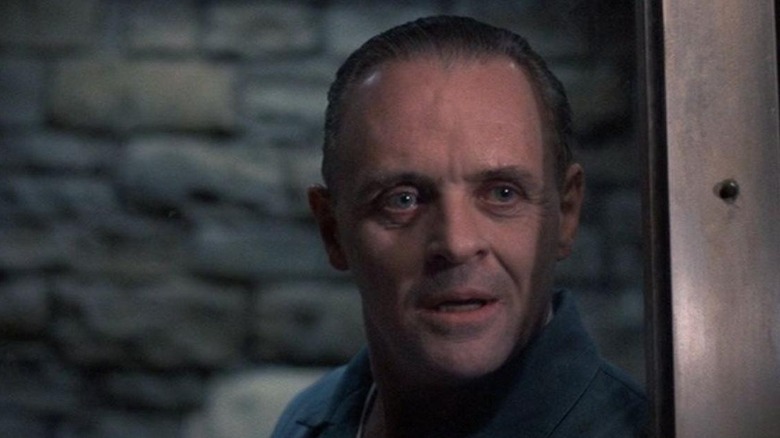
It's not exactly a secret why Hannibal Lecter from "The Silence of the Lambs" is on this list. He likes to eat people. And he also likes to feed people to themselves. He's so dangerous that he's kept in solitary confinement with a muzzle over his kisser. Clearly the folks in "Silence of the Lambs" are taking no chances with him, so we should all probably take him pretty seriously.
But a movie villain does not live on cannibalism and mass murder alone. To take on the mythic status that Hannibal Lecter has, he's got to have a little something special. And that's where Anthony Hopkins comes in, giving the noted psychopath a gentlemanly air, a strange sort of charisma that draws the viewer to him. His dynamic with Jodie Foster is a huge part of why this film would go on to win the Big Five at the Academy Awards, earning both him and Foster an Oscar for their efforts.
Hans Landa — Inglourious Basterds
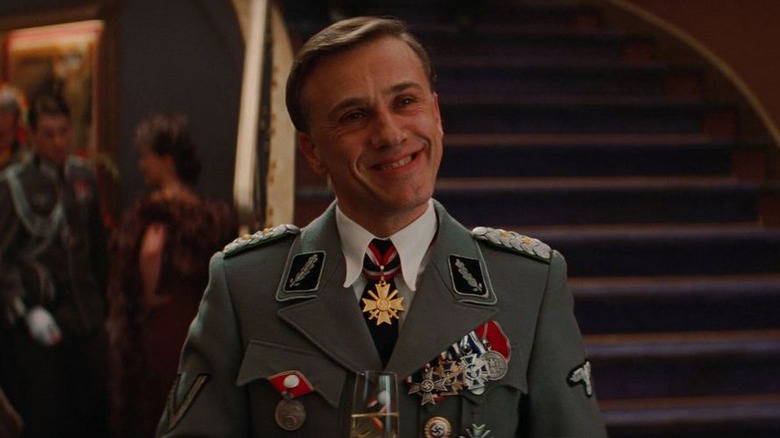
Colonel Hans Landa is called the "Jew Hunter" by his fellow SS officers, but his behavior isn't so much in line with a human hunter as it is with an animal playing with its prey. The slow, agonizing opening sequence of "Inglourious Basterds" stands as proof of this, in which Landa draws out the conversation with the French farmer seemingly for the fun of it. So does the considerable pleasure Landa draws from playing with Shoshannah, a Jewish woman hiding in plain sight. He constantly wrongfoots her, leaving her to guess if he's discovered her secret.
Landa disguises his cruelty under a veneer of easy pleasantries and good humor, but there are psychological mind games to be played and people to be tortured. It's rare that we catch glimpses of the dark side that Landa hides within, but when we do, we see that he strikes like a snake: sudden, deadly, and without mercy.
Read this next: 6 Other Batman Villains Who Deserve Their Own HBO Max Series
The post The 20 Best Villains From Non-Comic Book Movies Ranked appeared first on /Film.
from /Film https://ift.tt/2XBBIUK
No comments: